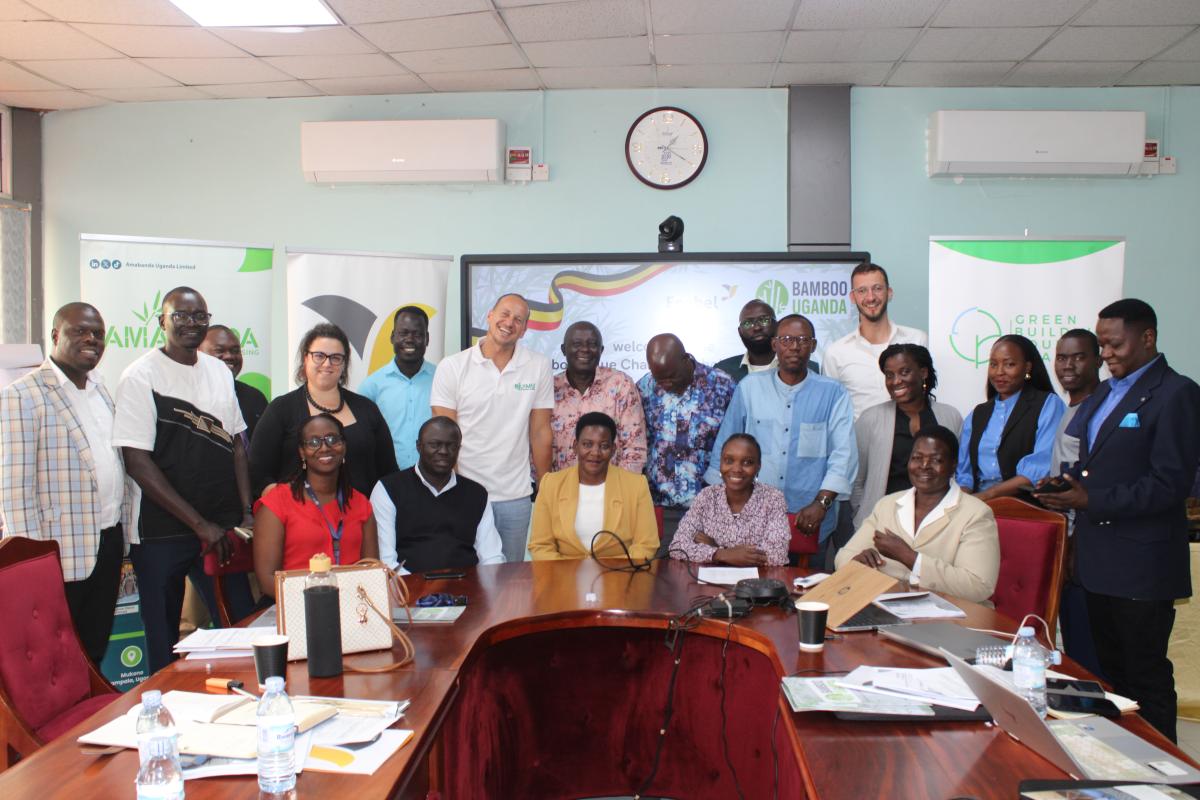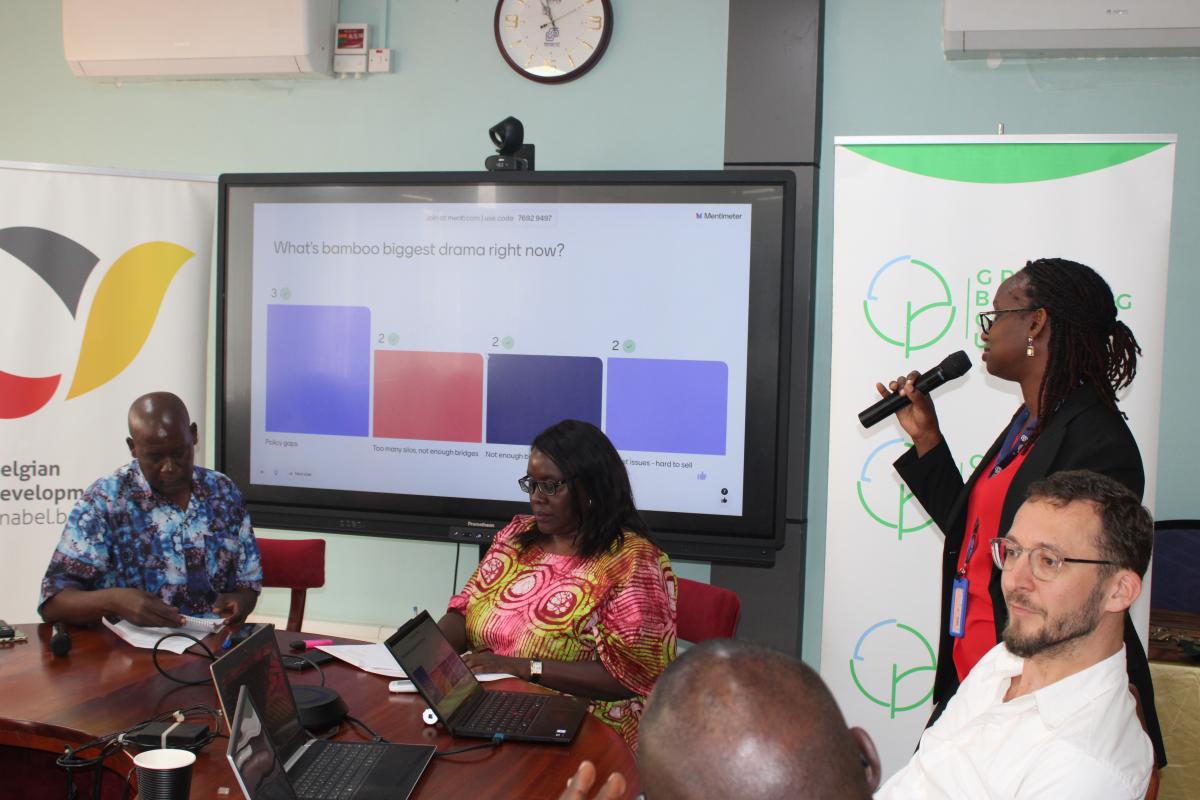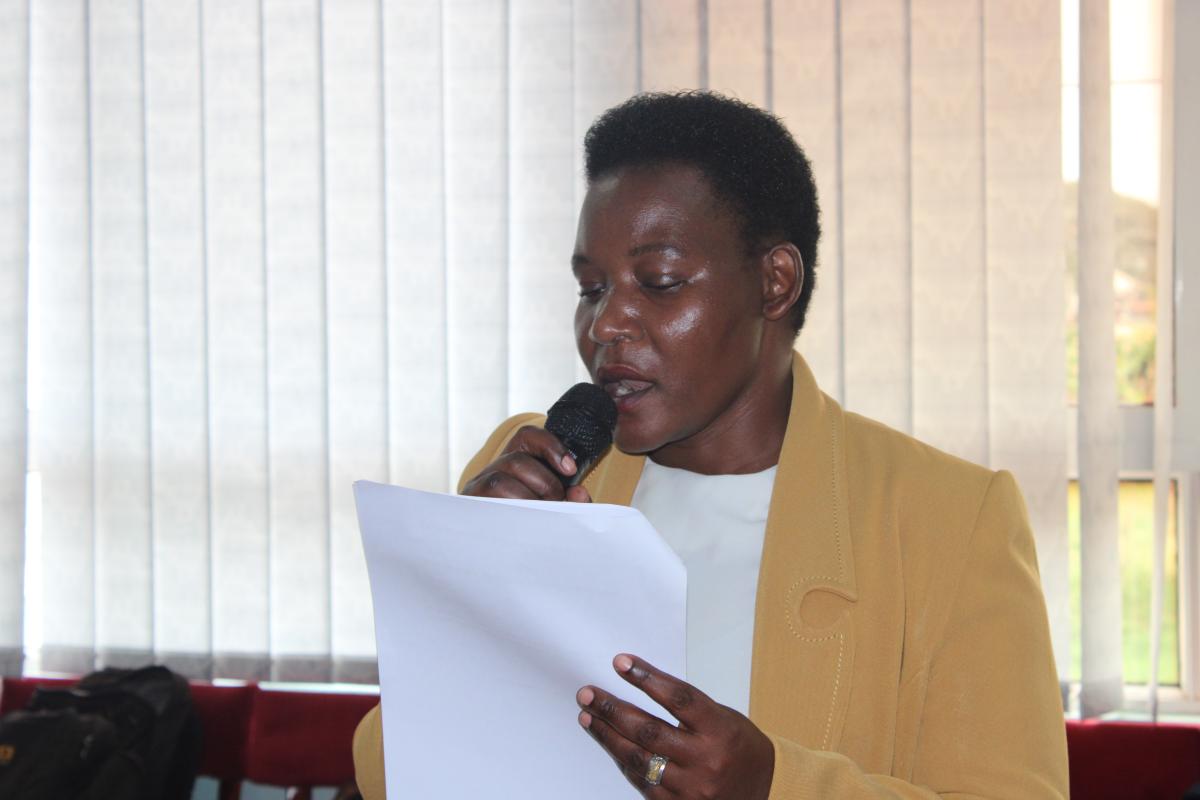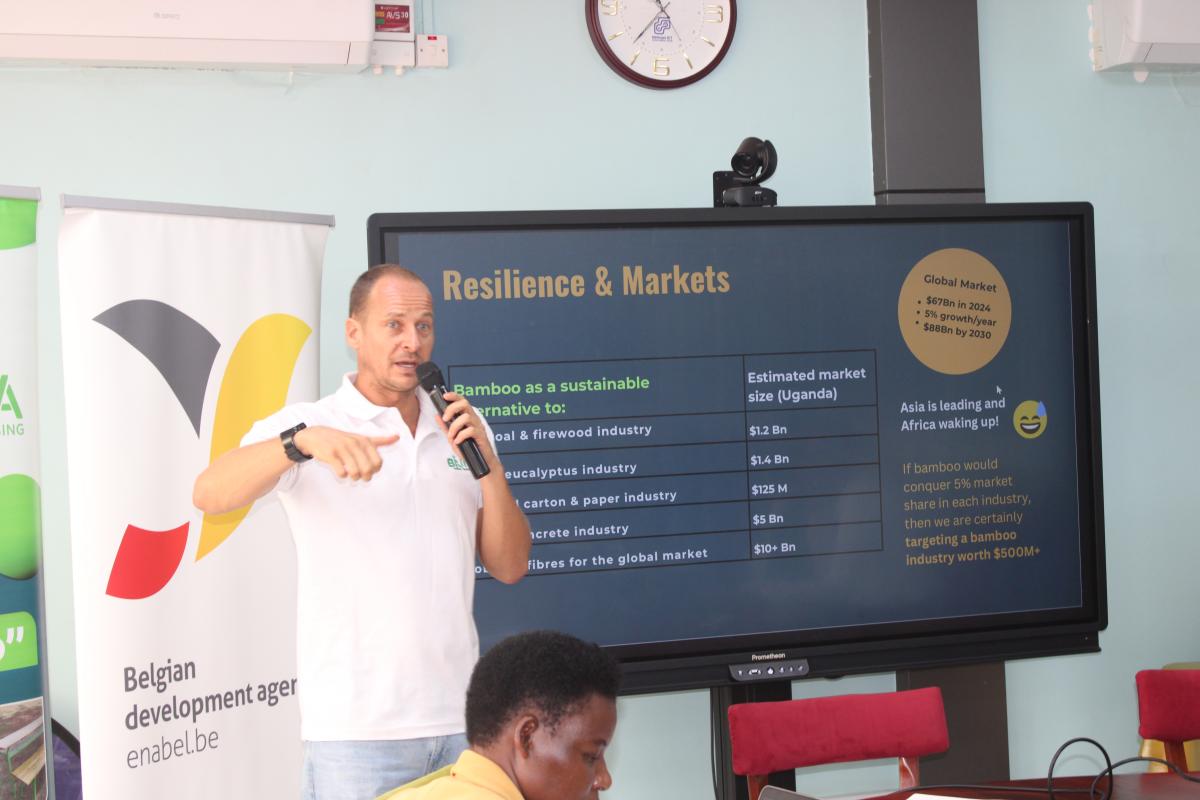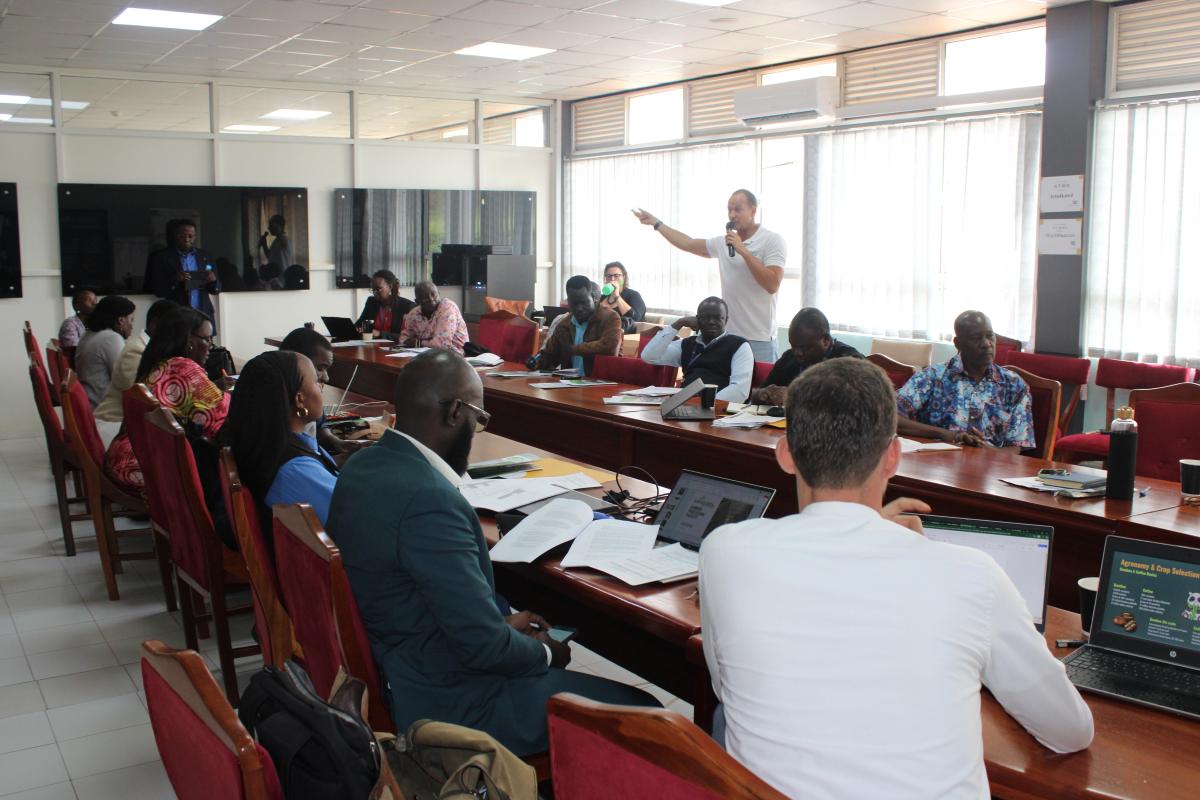Stakeholders unite to drive Uganda’s bamboo policy agenda
Key stakeholders in Uganda’s bamboo value chain have called for the urgent formulation of a National Bamboo Policy to guide coordination, investment, and industrialisation of the sector. This was during a dialogue convened on 23rd October 2025 by Enabel in collaboration with Bamboo Uganda, under the theme “From Strategy to Policy: Uniting Voices for a Sustainable Bamboo Future.”
Organised under the WeWork–green and decent jobs for youth project, the dialogue brought together representatives from government ministries, private sector actors, academia, civil society, and international partners to chart a clear roadmap for translating Uganda’s 2018 Bamboo Strategy into actionable policy.
Opening the dialogue on behalf of the Commissioner for Forestry in the Ministry of Water and Environment, Susan Kaikara emphasised bamboo’s potential to drive Uganda’s green growth agenda.
“Bamboo offers practical solutions for job creation, green enterprise growth, and improved livelihoods—especially for youth and rural communities,” she said. “Establishing a coherent national policy framework will strengthen coordination, inspire investment, and unlock bamboo’s full potential as a pillar of Uganda’s green economy.”
Uganda’s forest cover has declined from 24%
in 1990 to 12.6% in 2023, and bamboo has been identified as a strategic species
for restoration and sustainable development. The government’s 10-year Bamboo
Strategy, launched in 2019, targeted the planting of 2.5 million hectares of
bamboo by 2030.
Andrew Kalema, from Talent Agroforestry Farm, called for a mid-term review of that
strategy.
“We need to assess how much of the 2019
targets have been achieved and what remains to be done,” he said. “Today, we
have over 1,000 bamboo nurseries across the country, up from just 10, which
shows encouraging progress—but policy gaps still hold us back.”
Participants also noted that Uganda’s bamboo sector is expanding into green building materials, crafts, construction, and renewable energy. During the panel discussion, Gertrude Muwanga, Co-Founder and Executive Director of the Green Building Council Uganda (GBCUG), highlighted the legal, regulatory, and policy frameworks necessary to position bamboo as a recognised, viable, and incentivised construction material.
She stressed that understanding the constraints, gaps, and opportunities within these frameworks is essential if Uganda is to integrate bamboo meaningfully into its green construction agenda. Her remarks highlighted that policy and regulatory readiness must form the foundation for market growth, and that accurate representation of technical expertise is critical for ensuring credible contributions to public dialogue.
Speakers further highlighted the need for a coordinated approach among ministries, standards for bamboo products, and inclusion of bamboo technology in vocational training. Dr. Fred Ijjo, Founder of ‘Friends of Bamboo’ and builder of Uganda’s first bamboo building in Mpigi, stressed the importance of developing local skills.
“We have an information gap and a shortage of
trained technicians,” he said. “The Ministry of Education should integrate
bamboo technology into vocational curricula so young people can benefit from
emerging opportunities.”
Bamboo Uganda presented an ambitious 2024–2030 roadmap aiming to increase the number
of bamboo farmers from 500 to 5,000, expand plantations from 1,000 to 10,000
acres, and grow domestic revenue from USD 250,000 to USD 5 million.
“Let’s sit together as an industry, design
collective action, and think big,” a representative from Bamboo Uganda urged.
“If we can export coffee, why not bamboo? With the right policy, we can become
a global player.”
Closing the dialogue, Esther Magambo, a green
economy expert from Enabel reaffirmed the organisation’s commitment to
strengthening Uganda’s bamboo value chain.
“At Enabel, we see bamboo as a critical
driver of green growth and job creation. We are committed to supporting policy
development, enterprise growth, and skills training to build a unified and
sustainable bamboo sector.”
The meeting concluded with a consensus to speed
up the establishment of a National Bamboo Platform comprising
representatives from government, private sector, and development partners to
guide policy formulation and follow-up actions.
Latest news from this project
No news
